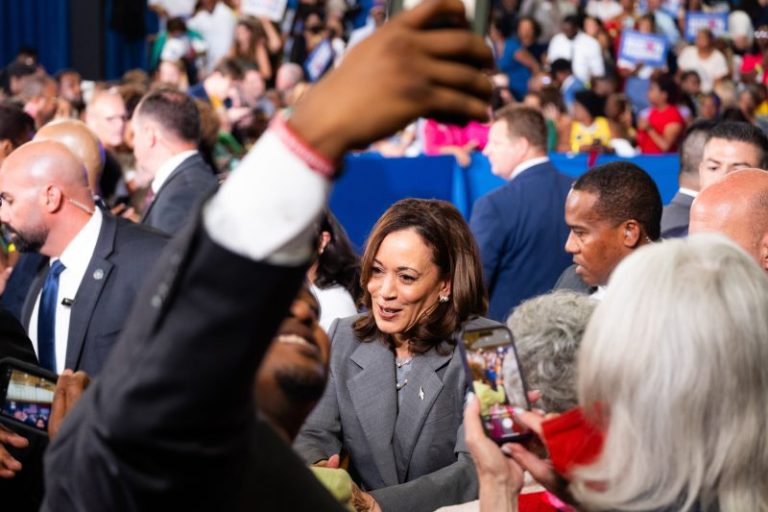The Democratic National Convention’s rules committee approved the process Wednesday for selecting their presidential nominee via a virtual roll call vote, to begin early next month.
Vice President Harris, who has amassed more than enough pledged support from delegates to win, is likely to be declared the official nominee by Aug. 7.
As of now, no serious candidate has emerged to challenge Harris for the nomination. If she remains the only person running, electronic voting will begin Aug. 1. If other candidates emerge, the voting may start a bit later to give them time to campaign for delegate votes, according to Democratic National Convention rules.
Any Democrat who wants to seek the presidential nomination has until Tuesday at 6 p.m. to formally declare their candidacy and obtain signatures of support from 300 delegates. At least 3,180 of the nearly 4,000 Democratic delegates have endorsed Harris, according to a survey by the Associated Press.
Political parties traditionally nominate the presidential ticket at their conventions, but Democrats decided this year to hold a virtual roll call weeks earlier than their Aug. 19 Chicago convention to ensure they meet ballot access deadlines. The issue arose due to an Aug. 7 Ohio deadline that could have kept the Democratic ticket off that state’s ballot.
The GOP-led Ohio legislature passed a law extending the deadline, but Democrats have insisted that they don’t trust Republicans in that state to adhere to it. Democrat have also pointed to late-August ballot deadlines in other states to suggest that the timeline is too tight for them to wait until the convention to nominate the party ticket.
State election officials in several states have said there are processes in place to help parties who might miss deadlines to ensure they get their candidates on the ballot. Election law experts say any legal efforts to challenge this would probably be dismissed by the courts because there is a deference to parties’ rights to have their nominees appear on the ballot.
Still, Pat Moore, a lawyer for the Democratic Party, insisted during a virtual meeting of the convention’s rules committee that they expected Republicans to be litigious about ballot deadlines, “arguing that our nominees should never have been on the ballot in the first place.”
A rules committee member asked during debate why the Democrats hadn’t considered the ballot access deadlines when they planned a late-August convention.
“Unfortunately, 2020 demonstrated that as far as election litigation is concerned, we are in a new world,” Moore said. “Will we face litigation no matter what? I think that’s safe to say … but accepting that we will face that litigation does not mean that we are powerless to strengthen our position.”
The new rules also note that there will still be a state-by-state roll call for the Democratic ticket at the Chicago convention but described those votes as “celebratory and ceremonial.”



